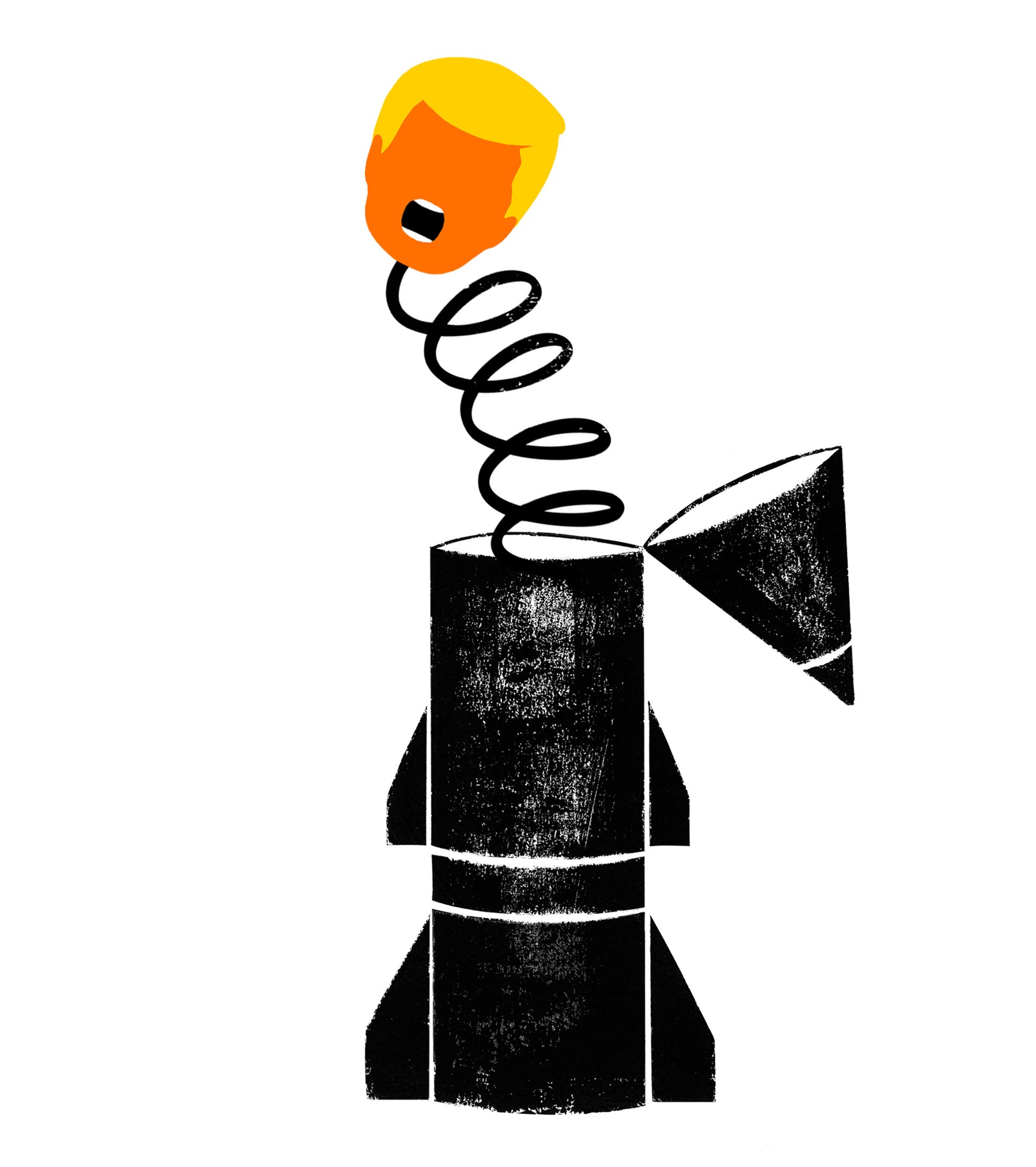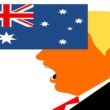If you are hopeful that the pending talks between President Donald Trump and North Korea’s leader, Kim Jong Un, (should they indeed take place) will bring a timely end to the nearly 68-year-long Korean War, don’t bet on it. The 1953 armistice, which was struck by military leaders of North Korea, the United States, South Korea, and their United Nations allies to halt the fighting, was in fact never concluded by a peace agreement to bring a formal end to a war in which, over three years, some four million people perished. The Korean War was a turning point for the United States: it precipitated the quadrupling of military spending between 1951 and 1952 and paved the way for the creation of the most destructive global military force in history.
It’s no mystery that North Korea wants the exact opposite of the “all or nothing” demand by John Bolton, President Trump’s polarizing new national security advisor—to promptly give up its nuclear arms or face a war. In a speech before party officials given in January of this year, Kim Jong Un clearly outlined what he expects going into talks with Trump. First and foremost, North Korea must be recognized and treated as a nuclear weapons state with potential long-range missiles. He is willing to discuss nuclear arms control on a step-by-step basis. Denuclearization, in the eyes of North Korea, means a process in which North Korea will no longer be a U.S. nuclear target and the United States will reduce its military presence in the region over a period of several years.
Despite recent hopeful statements about denuclearization, it may be too late to expect the North Koreans to relinquish their nuclear arms. That bridge was dismantled in the decades-long pursuit of regime change by hard-right forces in U.S. political leadership, a pursuit that provided not only a powerful incentive but also plenty of time for the North Koreans to amass a nuclear arsenal. As recently as late December of last year, Bolton, a leading keeper of the regime-change flame, told Fox News, “I think the only diplomatic option left is to eliminate the regime by reunifying the peninsula under South Korean control.” According to Bolton, it has to be “regime elimination [conducted] with the Chinese. This is something we need to do with them.”
Even though China may not oppose a peaceful reunification of the two Koreas, Bolton proceeded to deal a major blow to the prospect of Chinese cooperation when, in February 2018, he declared in The Wall Street Journal that the United States was legally justified to launch a first strike against North Korea. Six months before Bolton’s belligerent outburst, China warned it would honor the Sino–North Korean Mutual Aid and Cooperation Friendship Treaty and would intervene militarily in any hostile actions initiated against its regional partner. Let’s not forget that China sent three million troops to defend North Korea in the 1950s.
China shares many of the same goals as North Korea—maintaining the existing regime; preserving regional stability; and setting a freeze, at most, on nuclear arms development. Meeting the U.S. demand for complete denuclearization could lead to a geopolitical shift on the Korean Peninsula that might disadvantage China, leaving the acknowledged superpower with diminished regional leverage. In addition, South Korea, under President Moon Jae-in’s leadership, is detaching itself from the U.S. hard-line position by seeking a preliminary rapprochement with the North, resuming efforts that were suspended for some 20 years. Already, this overture has helped to relieve escalating tensions that threatened to get out of control. Since joining North Korea to compete as one team in the Winter Olympic games, South Korea has helped diminish the constant saber rattling.
Little mention, in the run-up to the Trump-Kim summit, is given to Russia, which it is worth recalling also shares a border with North Korea and has long played a historic role in its development. Russia, especially under the Putin regime, has expanded economic ties with Pyongyang that include major transportation and energy systems. Russia is keen on building nuclear power plants in North Korea and establishing a major natural gas pipeline through the border with North Korea into Asia. Even though Russia recently supported stronger sanctions, it has been “laundering” North Korean coal exports, a major source of revenue for the North Korean economy. Russia does not support regime change and certainly seeks to enhance its strategic interests in the Far East.
How Trump will handle Bolton is perhaps the biggest question affecting the outcome of the meeting. Combining threats with concessions has characterized negotiations with North Korea for decades. However, this mode does not sit well with Bolton, who has consistently advocated for war as the best path for the United States to achieve its goals. As Mike Pompeo comes in as the next secretary of state, will he offset the belligerence of Bolton and continue in the steps of his predecessor, Rex Tillerson, who repeatedly assured North Korea that the United States is not seeking regime change? Given the positive hype he is giving to this meeting, Trump quite possibly understands that pushing for regime change will turn it into an embarrassing disaster.
The last time regime change was seriously taken off the table was in 1994. In the spring and summer of that year, the United States was on a collision course with North Korea over its efforts to produce the plutonium needed to fuel its first nuclear weapons. This confrontation was resolved with a bilateral nonproliferation pact known as the Agreed Framework, signed in October 1994. This treaty remains the only government-to-government accord ever made between the United States and North Korea.
In essence, North Korea agreed to freeze its plutonium production program in exchange for heavy fuel oil, economic cooperation, and the construction of two modern light-water nuclear power plants. During President Bill Clinton’s second term, the administration was moving toward establishing a more normalized relationship with the North. Presidential adviser Wendy Sherman described an agreement with North Korea to eliminate its medium- and long-range missiles as “tantalizingly close” before final negotiations were overtaken by the 2000 presidential election.
But the framework was bitterly opposed by many Republicans, and when the GOP took control of Congress in 1995, it threw roadblocks in the way of key elements of the agreement. After George W. Bush was elected president, his administration promptly began to terminate the agreement and established an explicit policy of regime change. In January 2002, Bush declared North Korea a charter member of the “axis of evil” in his State of the Union address. By the fall of that year, North Korea was singled out as a potential nuclear target.
These huge steps backward set the stage for a hostile confrontation at a meeting between Assistant Secretary of State James Kelly and North Korean officials at Pyongyang in October 2002, during which the United States demanded that North Korea cease a “secret” uranium enrichment program or face severe consequences. The “secret” enrichment project was well-known in the Congress and had been widely reported in the news media—by 1999. North Korea had strictly complied with the Agreed Framework, freezing plutonium production for eight years. This problem could have been fixed using an existing provision in the agreement dealing with enrichment. North Korea, after its offer to put uranium enrichment on the table was spurned, promptly withdrew from the Nuclear Non-Proliferation Treaty, which it had rejoined in 1994, and began to produce nuclear weapons—igniting a full-blown crisis. Since then, the North has exploded six ever-more powerful nuclear weapons and is now near the threshold of possessing intercontinental ballistic missiles.
There are other vital geopolitical concerns, the status of which will affect the outcome of the U.S.–North Korea talks. For example, if Trump and Bolton act on their oft-stated desire to pull the plug on the Iran nuclear agreement, it is unlikely North Korea will be willing to embark on a path of denuclearization. This is not to mention the adverse consequences such a step will have on the fragile nonproliferation regime in the Middle East. North Korea, for its part, has repeatedly stated it will not fall into the same trap as Muammar al-Qaddafi, who, after being threatened, gave up Libya’s pursuit of nuclear weapons only to be overthrown. True to form, Bolton sees the Libyan outcome as a success to be emulated.
A largely obscured element of this crisis involves Japan. With the third largest domestic nuclear program in the world behind the United States and France, Japan holds about 5.3 metric tons of separated plutonium—enough to fuel some 1,000 nuclear weapons—and has advanced ballistic missiles and naval forces. Although Japan’s constitution bars the development of nuclear weapons, and it relies on the U.S. “nuclear umbrella,” former Secretary of State Henry Kissinger told the U.S. Senate Armed Services Committee in January, “If they [the North Koreans] continue to have nuclear weapons, nuclear weapons must spread in the rest of Asia.” He added, “Nor can it be that Japan will sit there.” In reality, a bigger looming threat may not be a North Korean missile hitting the United States but rather an unraveling of the nuclear nonproliferation regime in the Far East. This is an especially serious concern with respect to Japan, which engenders bitter regional memories of its brutal colonial rule in a not-so-distant 20th century.
An ideal outcome for the upcoming meeting between Trump and Kim Jong Un would be the establishment of a more serious dialogue that would somehow be insulated from Bolton’s predilections. A state of dormant war continues to exist on the Korean Peninsula and threatens to reawaken with unprecedented consequences for the rest of the world. The first order of business is to find a path to end this war, once and for all.
A senior scholar at the Institute for Policy Studies, Robert Alvarez served as senior policy adviser to the Energy Department’s secretary and deputy assistant secretary for national security and the environment from 1993 to 1999. During this tenure, he coordinated the Energy Department’s nuclear material strategic planning and established the department’s first asset management program.
This article was included in print in the May 2018 issue of the Washington Spectator.






0 Comments